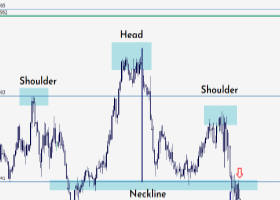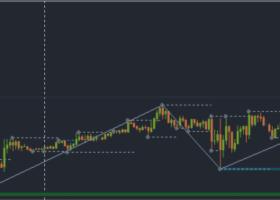Why Negative Balance Protection is so Important
The recent CHF debacle has been quite instructive for a number of reasons. We all agree that low volatility is a bad thing in retail forex, but too much of it can be catastrophic. However, it’s precisely when the markets stray from that comfortable middle ground that we get a unique insight as to who’s who in this industry. The confusing acronyms and contradictory marketing copy fall away and we see brokers through their actions. This is exactly what happened in January when the SNB removed its 1.20 floor.
Many market-making brokers not only appear to have been unaffected by the unprecedented EUR/CHF move, but also seem to have done quite nicely out of it by passing on huge amounts of negative slippage to their clients, proving once and for all that their interests are diametrically opposed to those of their clients.
But aside from this we also learned that it’s not as clear-cut as market makers vs agency brokers. The hot topic since January 15 has been that of negative balance protection, or lack thereof. So, not only do we have a subset of brokers who remain completely insulated from the market by keeping their clients’ orders on their own books and profiting from their losses, we also have agency brokers pursuing their clients for negative balances when the market stress-tests their business model. The result? Thanks to the actions of a number of brokers the entire industry comes out of this black swan event looking bad.
Negative balance protection should have never been something that you just put on your website in order to reassure newcomers. For us it’s a guarantee that you as a broker are sufficiently well capitalised and have all the relevant risk management protocols in place to weather any storm. It’s a watermark of professionalism and credibility that must be honored, no-matter how steep the cost.
When the news of certain brokers’ insolvencies was followed by announcements that several had already begun pursuing their clients for negative balances, the scene became reminiscent of the ‘too big to fail’ banks during the 2008 crisis, that bankrupted themselves and then demanded for taxpayers to bail them out. It’s hilarious how we love the free market while we’re benefitting from it, but want a safety net when it turns around and bites us. It’s absolutely outrageous for brokers that profited from the trading of their clients for so many years, to now resort to hounding them for these negative balances. When your clients routinely blow up their accounts are you expected to refund them? Why, then, are you now attempting to have them cover what are essentially your own losses? If their margin calls are their own responsibility then, surely, you too are responsible for yours.
This ridiculous idea of private profits and public losses is perhaps one of the most venal aspects of the economic system and it breeds a sense of contempt in the general public, who are usually left to foot the bill. We as an industry could have come out of this event united and honourable, rather than some of us trying to climb back up on the backs of the brokers' clients.
The fact remains that if you are offering highly leveraged products that can amplify losses as readily as they do gains, you ought to build some protections in, so that if the market moves against your clients they don’t end up losing more than they initially invested, even if you’re not strictly obliged to. It’s a complete no-brainer. By reneging on that commitment, or not offering it in the first place, not only do you lose the confidence of traders, but you also give the industry a bad name.


